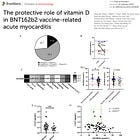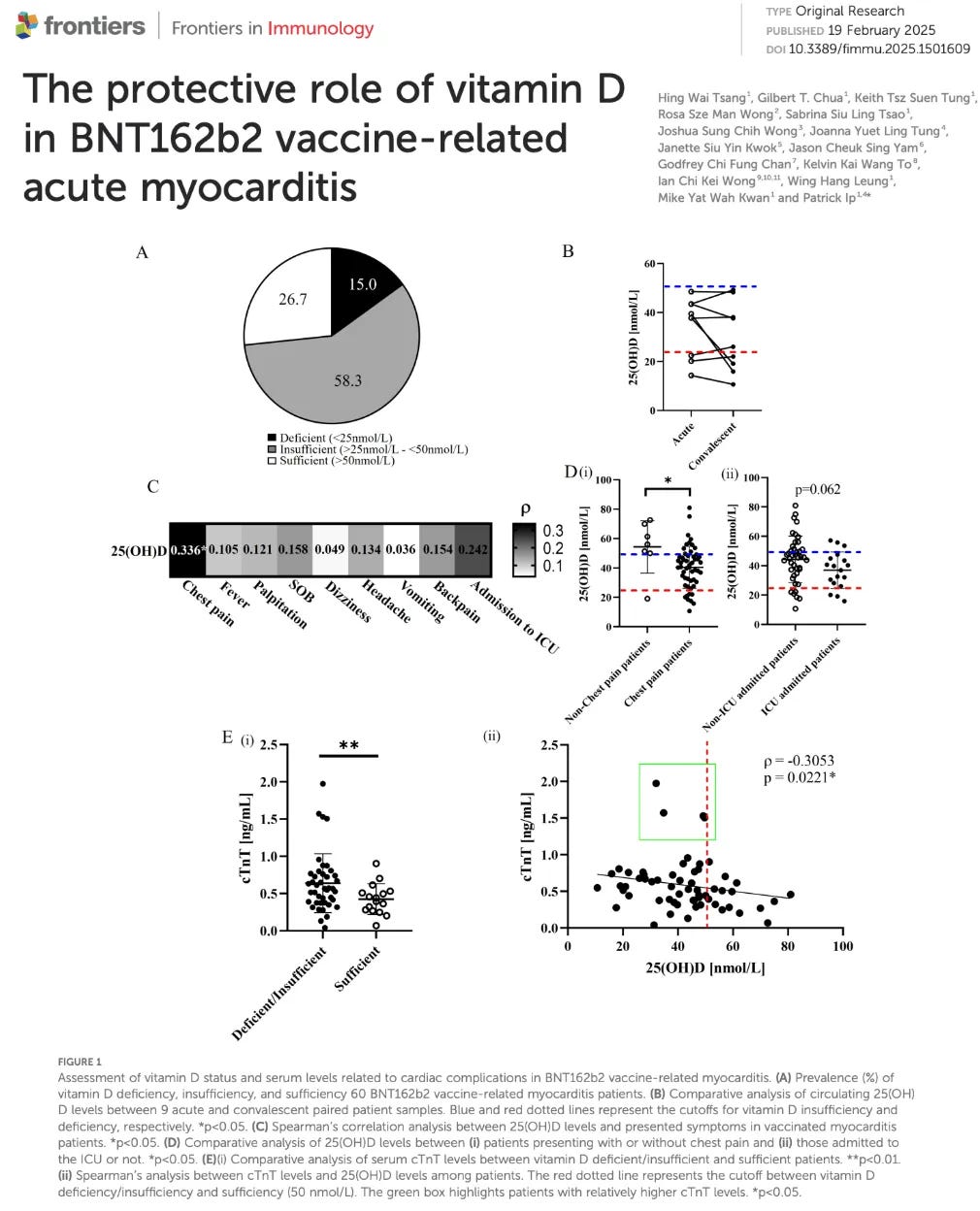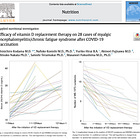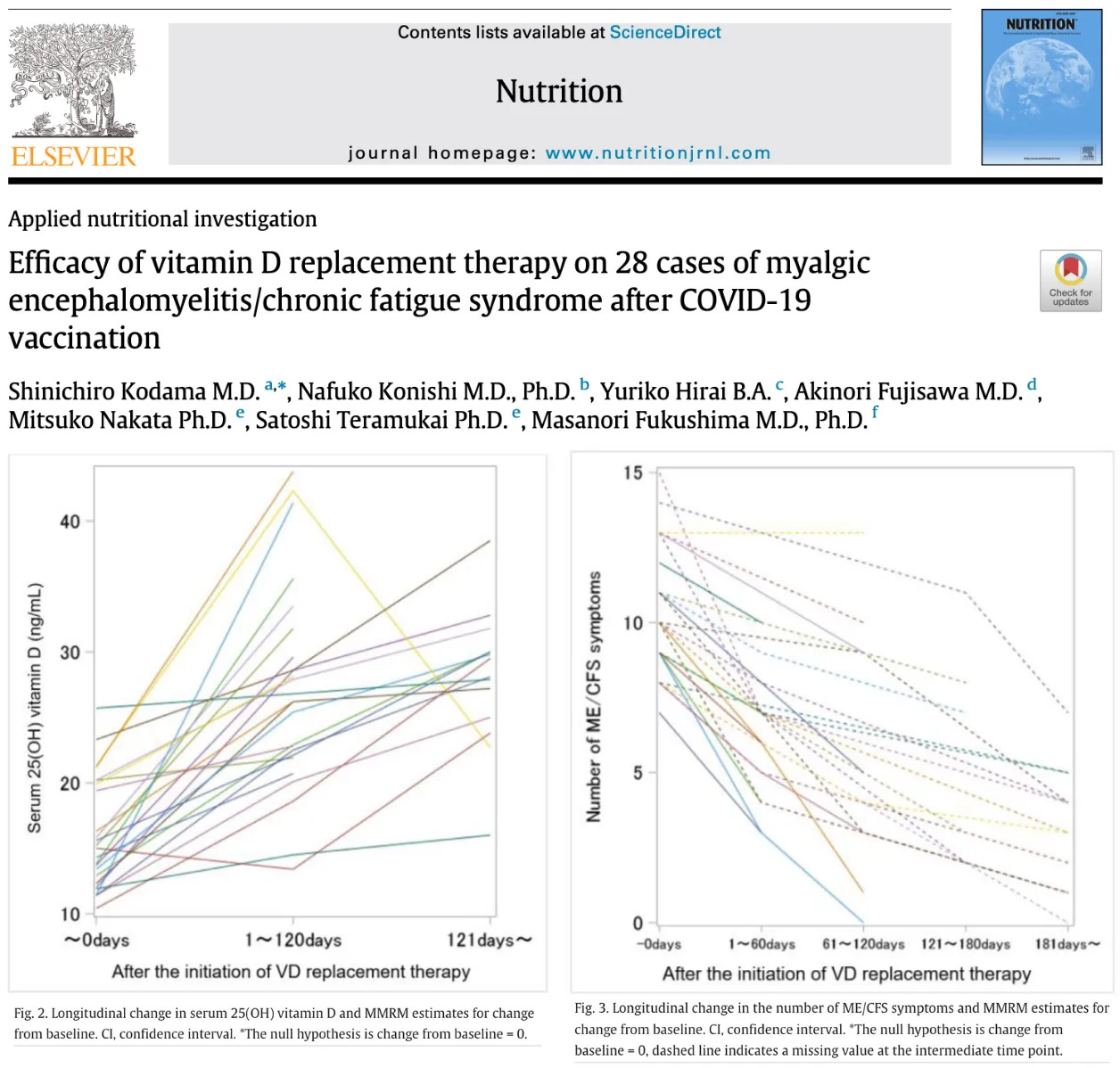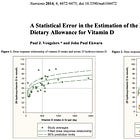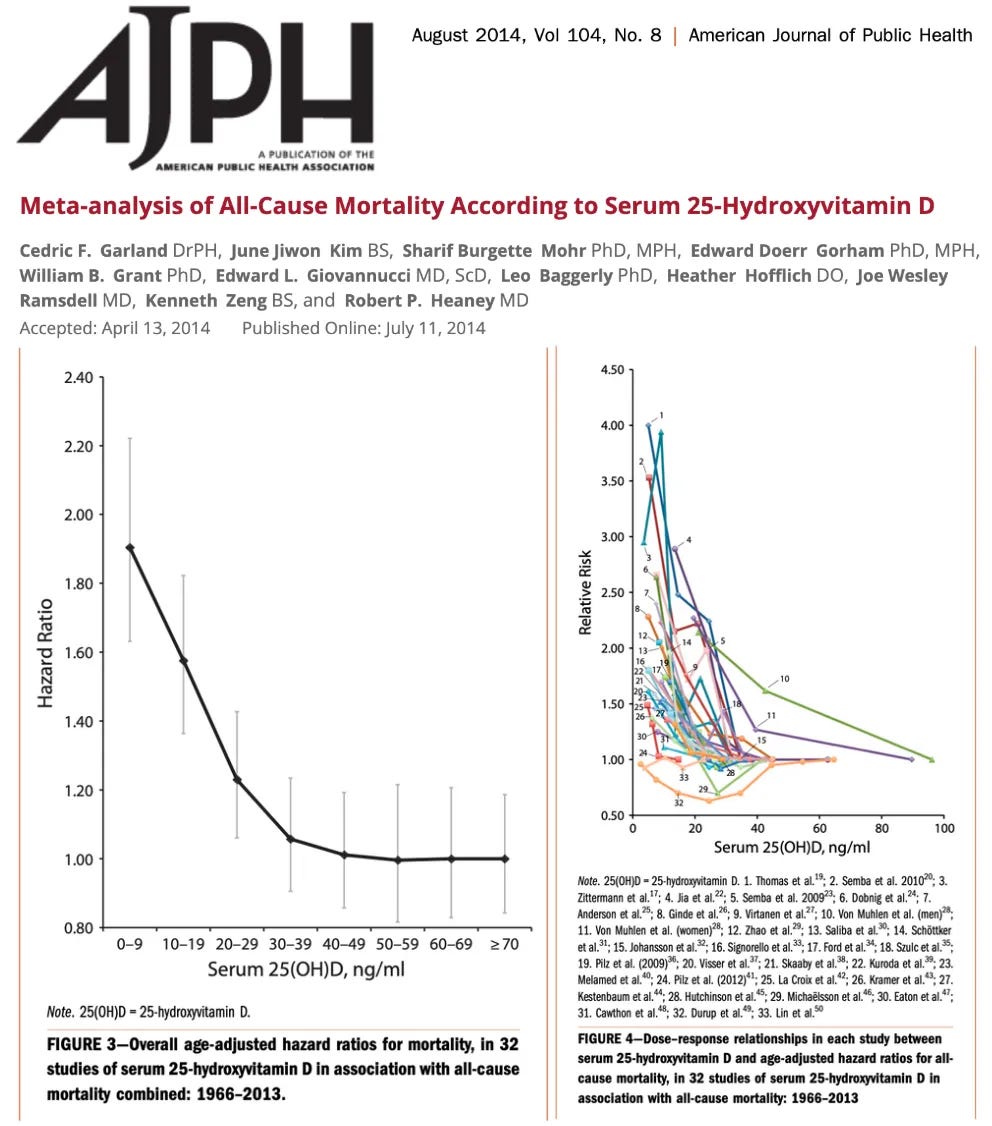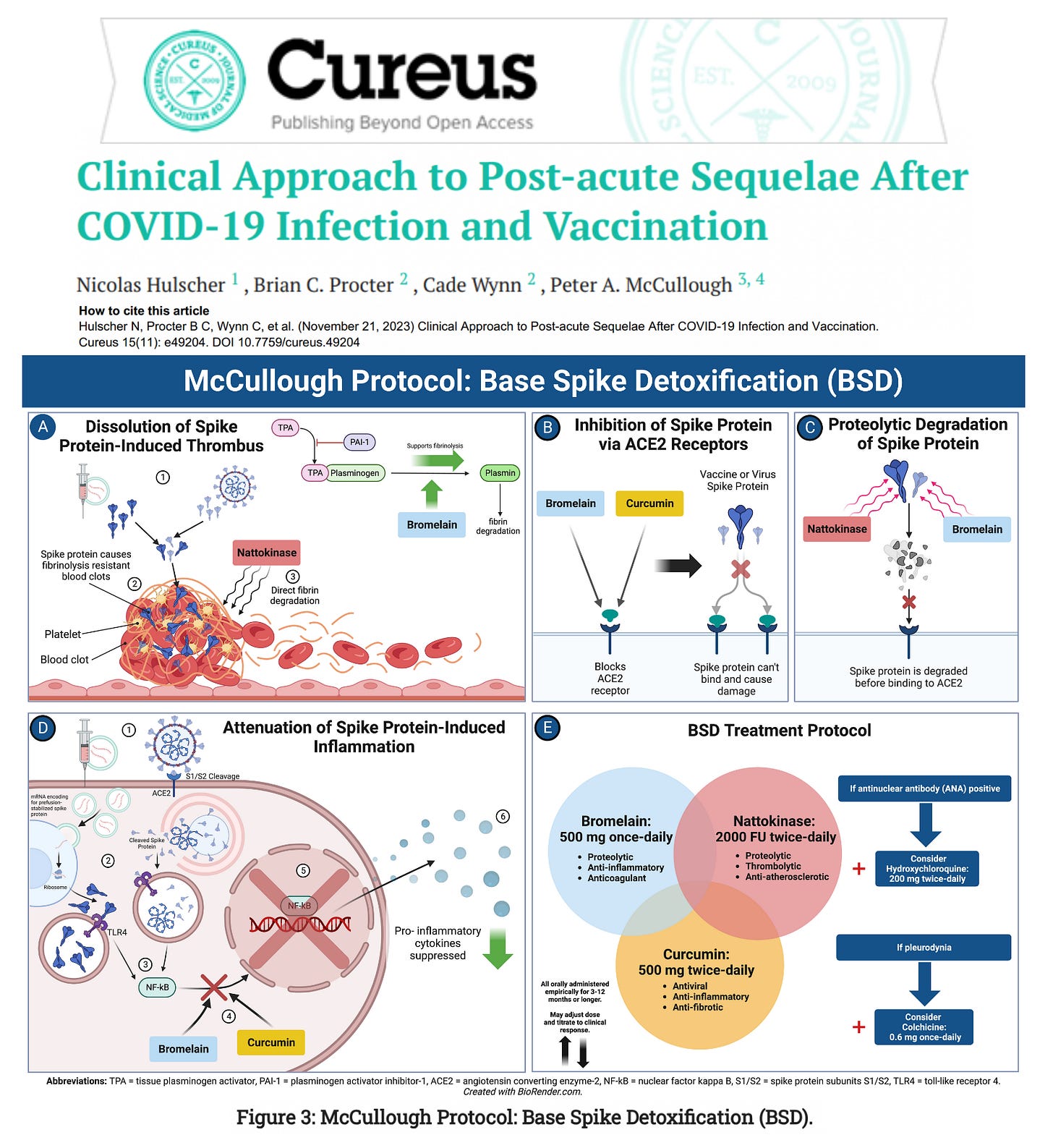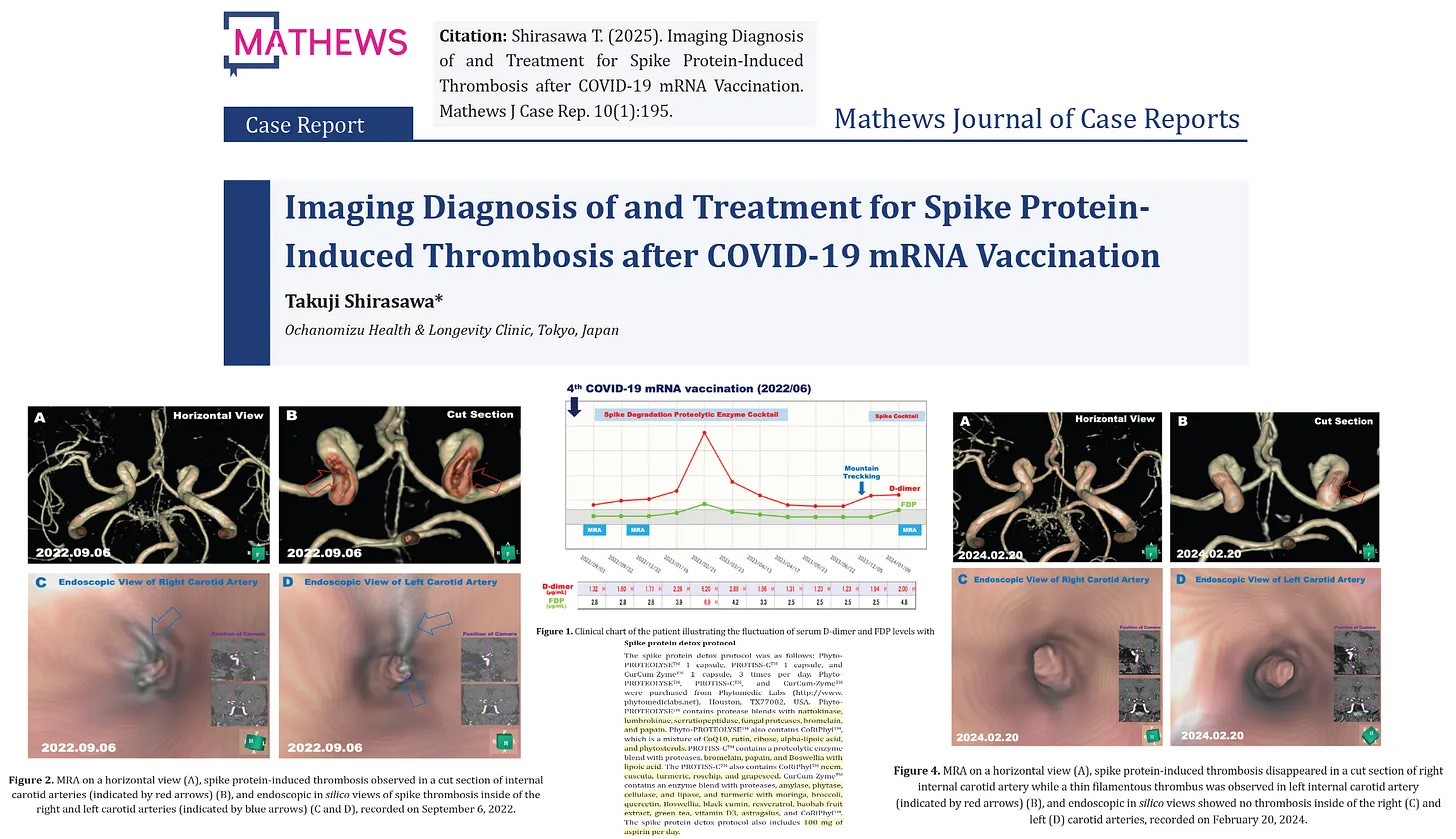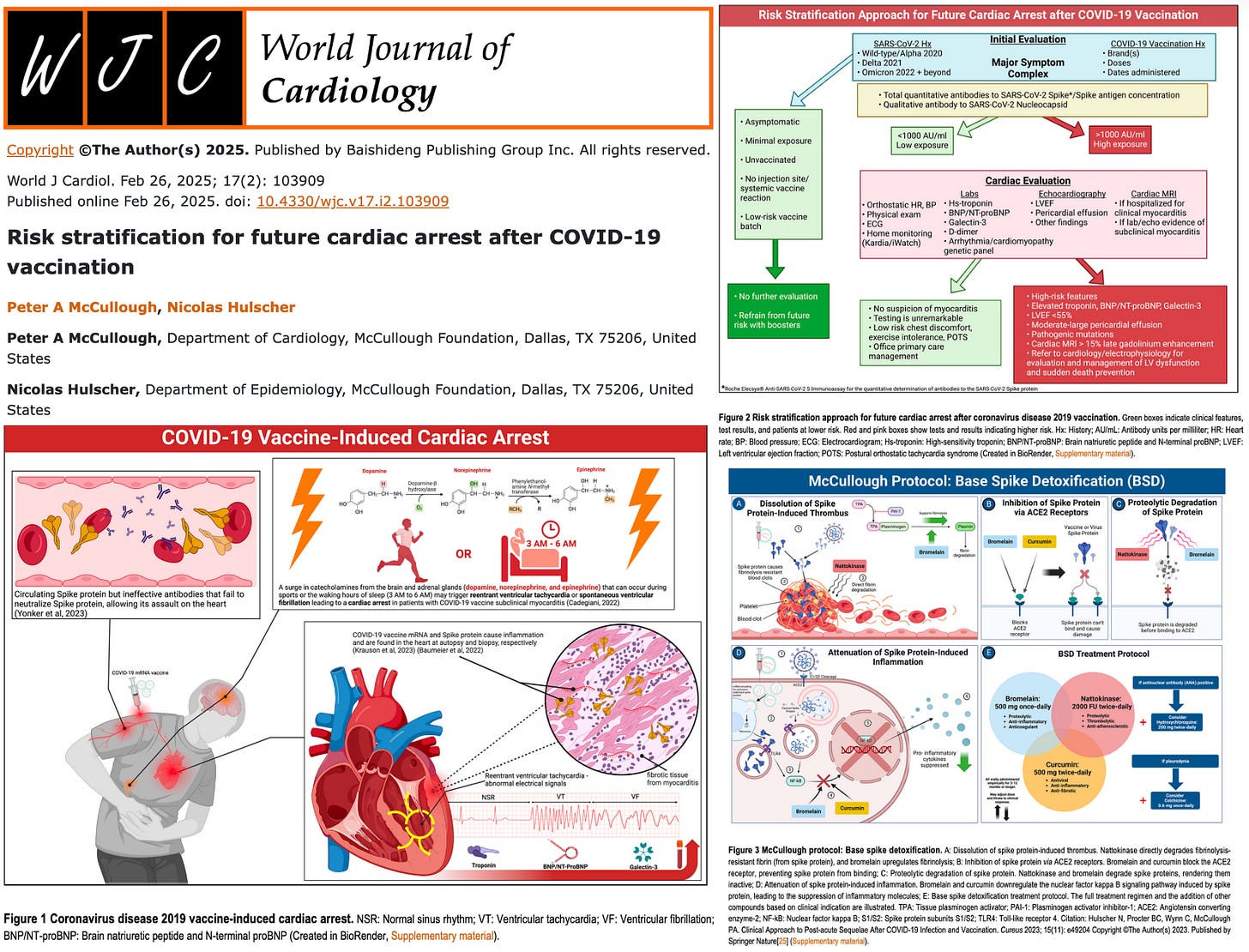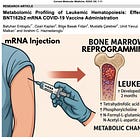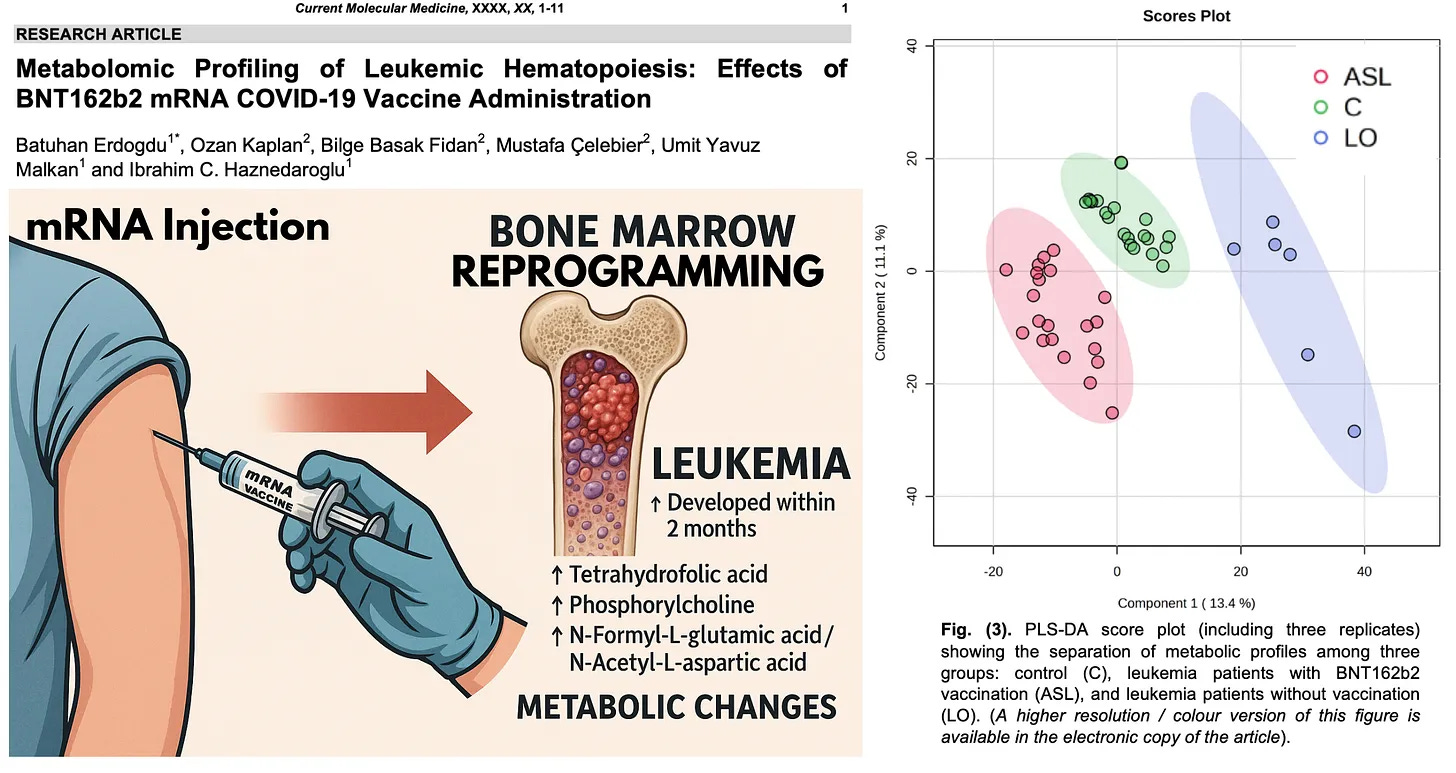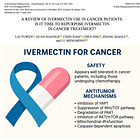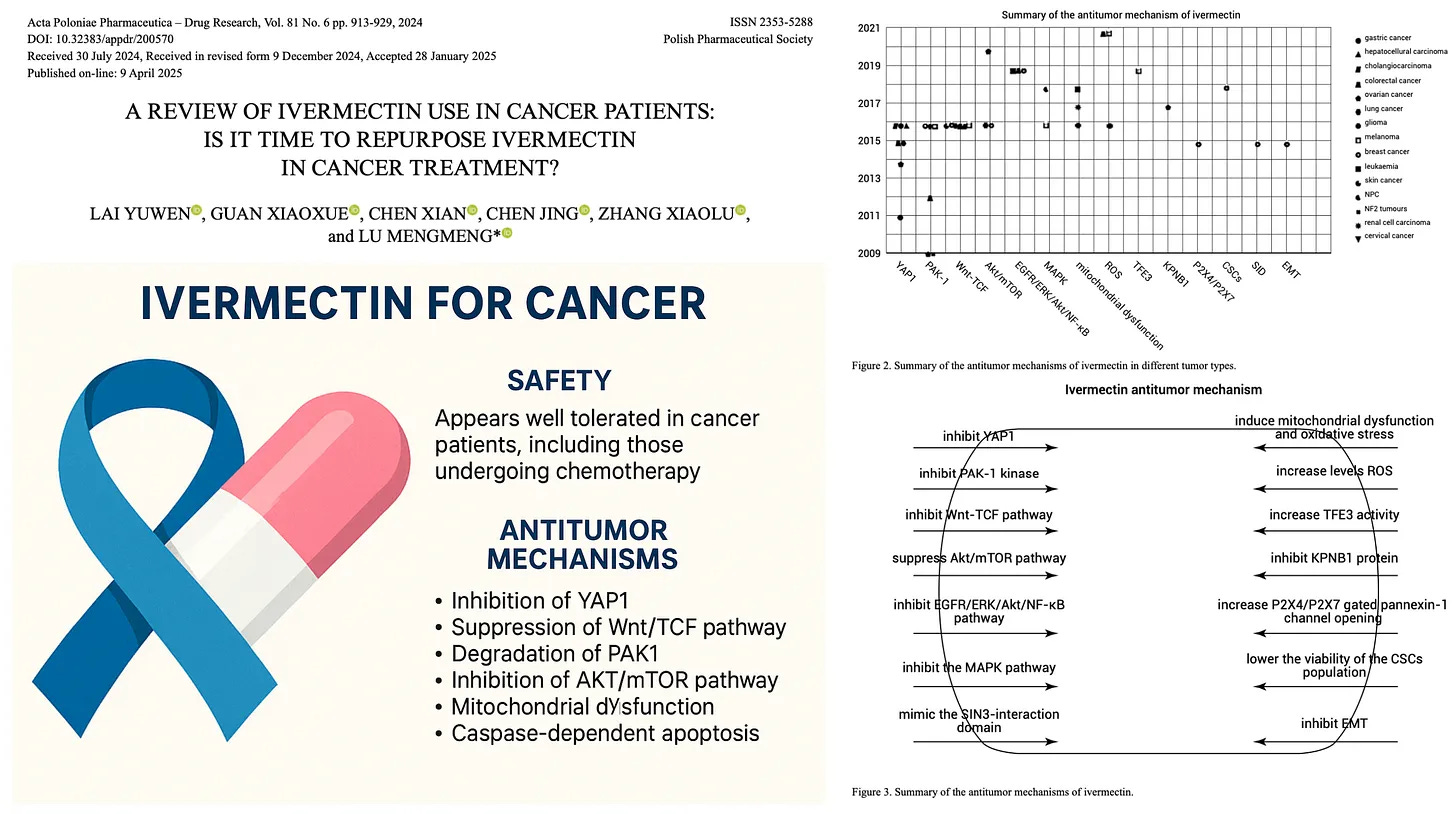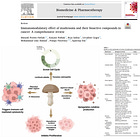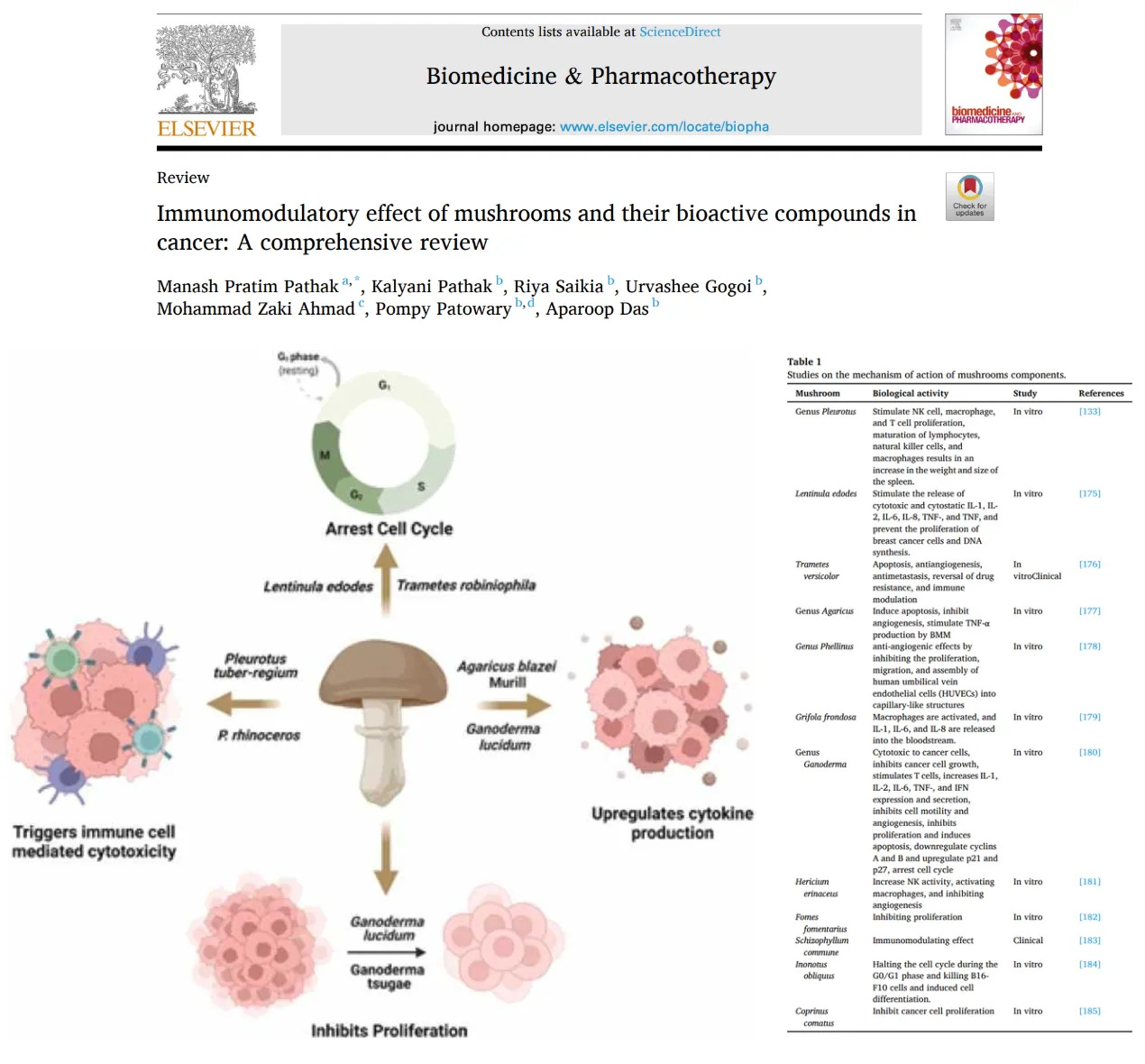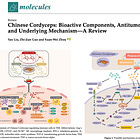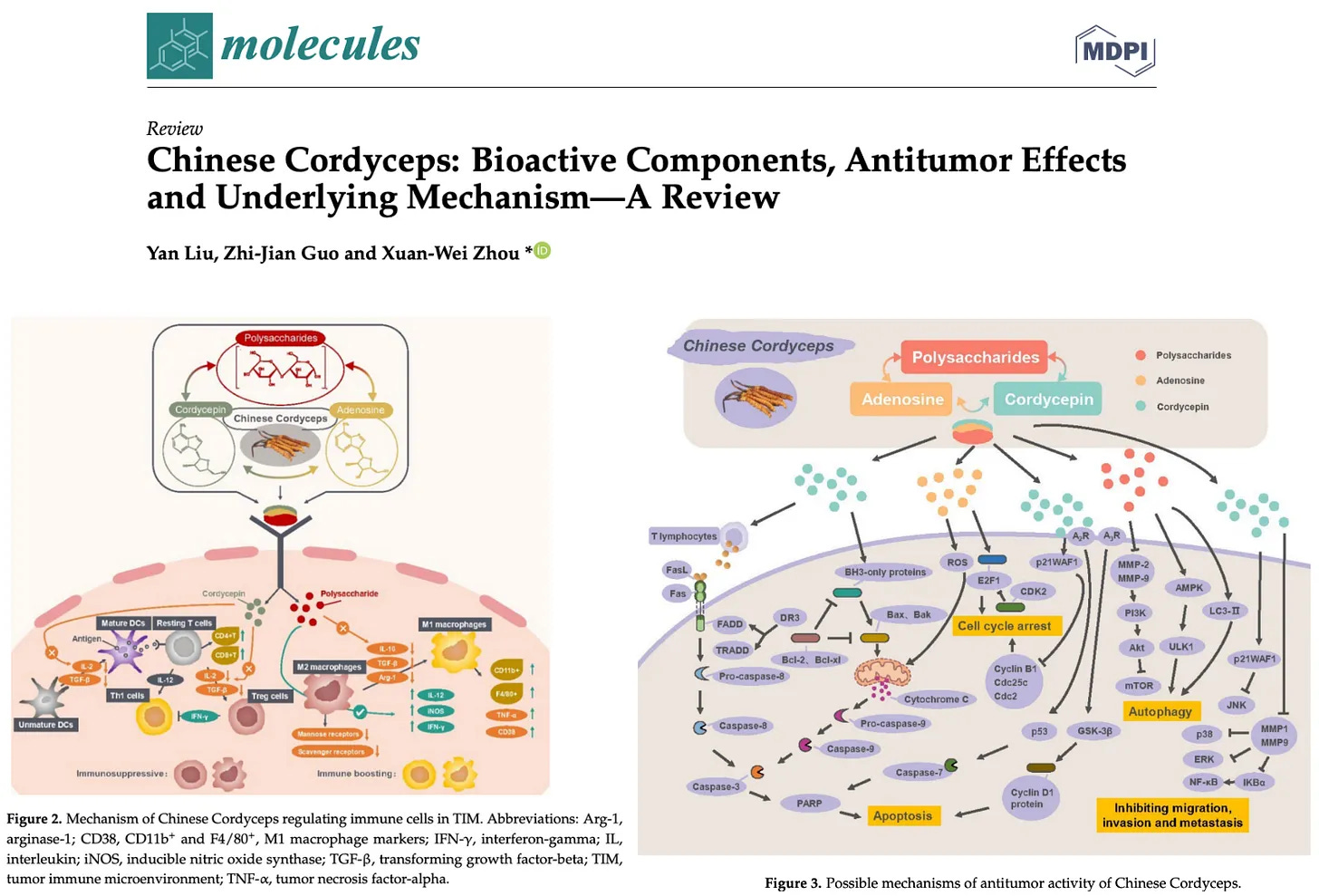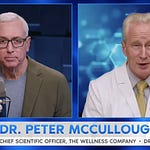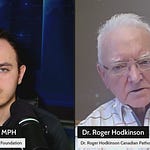Millions of people injured by mRNA injections have been completely abandoned by our public health agencies. In the absence of meaningful support, it is critically important to identify and advance safe, evidence-based strategies to aid recovery. At the McCullough Foundation, ongoing research has highlighted the following key interventions:
Vitamin D
Mounting evidence supports vitamin D as a critical intervention for vaccine injury:
Myocarditis Protection: 73.3% of mRNA vaccine-induced myocarditis cases were vitamin D deficient, and low levels correlated with significantly worse inflammation, higher troponin levels, and more ICU admissions. Sufficient levels were associated with reduced severity.
Chronic Fatigue Recovery: In post-vaccine ME/CFS patients, vitamin D therapy led to symptom resolution in 82% of cases, with major improvements in sleep, autonomic function, and energy.
Mortality Reduction: A meta-analysis of 32 studies found that individuals with healthy vitamin D levels (≥30 ng/mL) had nearly half the risk of all-cause mortality compared to those with severely low levels (0–9 ng/mL).
McCullough Protocol: Base Spike Detoxification
Developed to address spike protein toxicity from both infection and mRNA injection, Base Spike Detoxification provides four putative, primary mechanisms of action:
proteolytic degradation of spike protein,
inhibition of inflammation from spike protein and its fragments in tissues,
dissolution of microthrombi, and
anticoagulation.
It integrates well-studied natural compounds to target these mechanisms and support recovery in individuals with long COVID or post-vaccination syndromes:
Nattokinase – A proteolytic enzyme that potently degrades spike protein in-vitro, dissolves fibrin-based microthrombi, and has been used successfully in a proteolytic enzyme protocol to clear spike protein-induced thrombi and resolve neurological symptoms post-vaccination:
Bromelain – Breaks down spike protein and reduces inflammation by inhibiting NF-κB and COX-2 pathways.
Curcumin – Blocks spike binding to ACE2 receptors, supports fibrinolysis, and suppresses spike-driven inflammatory signaling.
Risk Stratification
Early diagnosis of COVID-19 vaccine-induced cardiac injury can help prevent sudden death.
In a peer-reviewed paper, we propose a comprehensive strategy for evaluating cardiovascular risk post-vaccination, incorporating detailed patient history, antibody testing, and cardiac diagnostics in the best attempt to detect abnormalities before sudden cardiac death. This approach aims to identify individuals at higher risk of cardiac events after COVID-19 vaccination and guide appropriate clinical management.
Turbo Cancer Solutions
A new study by Erdogdu et al that found mRNA injections induce cancer-linked bone marrow reprogramming within weeks:
With over 70% of the world’s population having received at least one dose of an immune-dysregulating and carcinogenic COVID-19 vaccine, urgent investigation into potential solutions is warranted to address the skyrocketing cancer rates.
Emerging evidence on ivermectin, fenbendazole, and medicinal mushrooms points toward a paradigm shift in cancer care—away from chemotherapy toward safe, immune-supportive therapies.
The largest review to date of ivermectin use in cancer patients found no safety concerns, promising anecdotal reports, and strong preclinical evidence of tumor suppression:
Additionally, medicinal mushrooms demonstrate significant promise in cancer prevention and treatment—supported by mechanistic, epidemiological, and emerging clinical evidence:
Particularly, cordyceps mushroom may offer protective benefits against mRNA vaccine-induced cancer by restoring immune surveillance, reducing chronic inflammation, and inhibiting key oncogenic signaling pathways that are activated by persistent spike protein expression and vaccine-induced immune dysregulation:
Additionally, Neo7Bioscience is currently researching personalized peptide therapies for mRNA vaccine-induced injury and turbo cancer.
Targeted Dietary and Lifestyle Strategies
Eliminating ultra-processed foods, restoring essential nutrients, getting adequate sun exposure, and promoting healthy circulation through exercise and whole, nutrient-dense meals can significantly enhance overall health and resilience. These strategies support the body’s natural detoxification and repair processes, helping to improve long-term recovery and health outcomes.
In my recent interview on Lindell TV’s MAHA With Mike, we discuss all of this and more.
The McCullough Foundation will continue leading the search for real solutions to vaccine injury—where public health authorities have failed.
If you'd like to support our research, please consider making a donation. 77% of our funding comes from grassroots donors giving under $100. Every contribution makes a difference: https://mcculloughfnd.org/products/donate-1
REFERENCES
Tsang HW, Chua GT, Tung KTS, et al. The protective role of vitamin D in BNT162b2 vaccine-related acute myocarditis. Front Immunol. 2025;16:1501609. Published 2025 Feb 19. doi:10.3389/fimmu.2025.1501609
Kodama S, Konishi N, Hirai Y, et al. Efficacy of vitamin D replacement therapy on 28 cases of myalgic encephalomyelitis/chronic fatigue syndrome after COVID-19 vaccination. Nutrition. Published online February 18, 2025. doi:10.1016/j.nut.2025.112718
Garland CF, Kim JJ, Mohr SB, et al. Meta-analysis of all-cause mortality according to serum 25-hydroxyvitamin D. Am J Public Health. 2014;104(8):e43-e50. doi:10.2105/AJPH.2014.302034
Hulscher N, Procter BC, Wynn C, McCullough PA. Clinical Approach to Post-acute Sequelae After COVID-19 Infection and Vaccination. Cureus. 2023;15(11):e49204. Published 2023 Nov 21. doi:10.7759/cureus.49204
McCullough, PA, Wynn, C, Procter, BC. (2023). Clinical Rationale for SARS-CoV-2 Base Spike Protein Detoxification in Post COVID-19 and Vaccine Injury Syndromes. Journal of American Physicians and Surgeons, 28(3), Fall 2023 90–94.
Shirasawa T. (2025). Imaging Diagnosis of and Treatment for Spike Protein-Induced Thrombosis after COVID-19 mRNA Vaccination. Mathews J Case Rep. 10(1):195.
McCullough PA, Hulscher N. Risk stratification for future cardiac arrest after COVID-19 vaccination. World J Cardiol. 2025;17(2):103909. doi:10.4330/wjc.v17.i2.103909
Erdoğdu B, Kaplan O, Fidan BB, Çelebier M, Malkan ÜY, Haznedaroglu IC. Metabolomic Profiling of Leukemic Hematopoiesis: Effects of BNT162b2 mRNA COVID-19 Vaccine Administration. Curr Mol Med. Published online June 3, 2025. doi:10.2174/0115665240361878250601074746
Lai Y, Guan X, Chen X, Chen J, Zhang X, Lu M. A review of ivermectin use in cancer patients: is it time to repurpose ivermectin in cancer treatment? Acta Pol Pharm – Drug Res. 2024;81(6):913–929. doi:10.32383/appdr/200570
Pathak MP, Pathak K, Saikia R, et al. Immunomodulatory effect of mushrooms and their bioactive compounds in cancer: A comprehensive review. Biomed Pharmacother. 2022;149:112901. doi:10.1016/j.biopha.2022.112901
Ba DM, Ssentongo P, Beelman RB, Muscat J, Gao X, Richie JP. Higher Mushroom Consumption Is Associated with Lower Risk of Cancer: A Systematic Review and Meta-Analysis of Observational Studies. Adv Nutr. 2021;12(5):1691-1704. doi:10.1093/advances/nmab015
Narayanan S, de Mores AR, Cohen L, et al. Medicinal Mushroom Supplements in Cancer: A Systematic Review of Clinical Studies. Curr Oncol Rep. 2023;25(6):569-587. doi:10.1007/s11912-023-01408-2
Liu Y, Guo ZJ, Zhou XW. Chinese Cordyceps: Bioactive Components, Antitumor Effects and Underlying Mechanism-A Review. Molecules. 2022;27(19):6576. Published 2022 Oct 4. doi:10.3390/molecules27196576
Epidemiologist and Foundation Administrator, McCullough Foundation
www.mcculloughfnd.org
Please consider following both the McCullough Foundation and my personal account on X (formerly Twitter) for further content.



